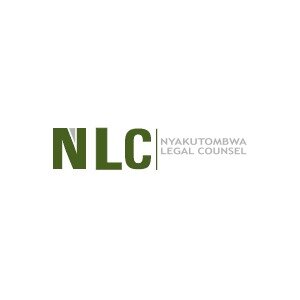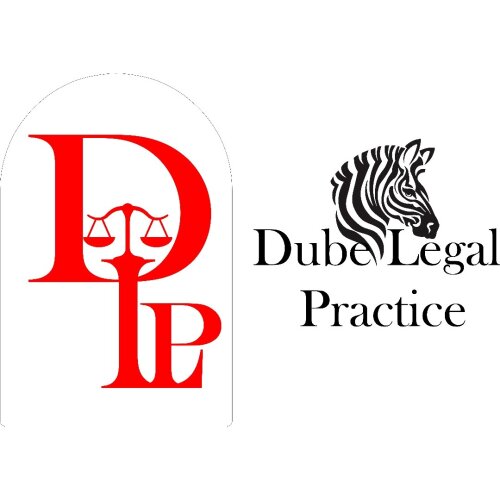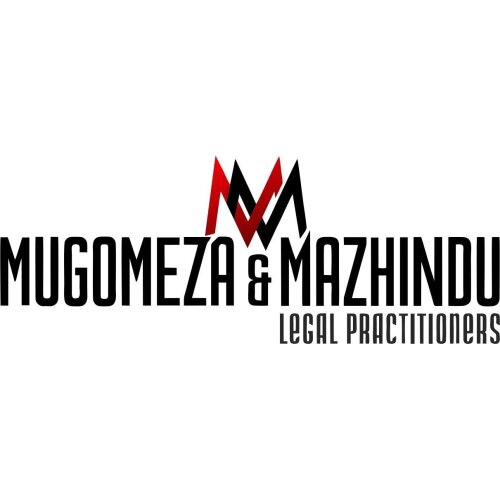Best Climate Change Law Lawyers in Zimbabwe
Share your needs with us, get contacted by law firms.
Free. Takes 2 min.
Or refine your search by selecting a city:
List of the best lawyers in Zimbabwe
About Climate Change Law in Zimbabwe
Climate Change Law in Zimbabwe refers to the legal framework, policies, and regulations governing activities that impact climate change, including the emission of greenhouse gases, land use, energy production, and environmental management. With Zimbabwe facing threats like drought, erratic rainfall, and increased temperatures, addressing climate change through the law has become essential. The legal landscape includes both national legislation and Zimbabwe’s international commitments under treaties such as the Paris Agreement. The goal is to promote sustainability, mitigate environmental harm, and ensure socio-economic resilience.
Why You May Need a Lawyer
Engaging a lawyer experienced in Climate Change Law can be crucial in a variety of scenarios. You may need legal help if you are:
- Developing or investing in a business with environmental impact, such as mining or agriculture
- Accused of breaching environmental regulations, for example, illegal dumping or emissions
- Seeking environmental approvals or permits for new projects
- Challenging or defending administrative decisions by government agencies on environmental grounds
- Advocating for community rights affected by environmental harm or displacement
- Wanting to understand your obligations or rights under new climate-related policies
- Involved in civil society actions or public interest litigation on climate issues
A knowledgeable lawyer can help you navigate complex regulations, understand compliance requirements, access legal remedies, and participate in policy advocacy.
Local Laws Overview
Zimbabwe has developed several laws and policies related to climate change and environmental protection. Some key aspects include:
- Environmental Management Act (Chapter 20:27): This is the main environmental statute, regulating pollution control, waste management, and environmental impact assessments (EIAs).
- Climate Policy and National Climate Change Response Strategy: These guide Zimbabwe’s efforts to adapt to and mitigate climate impacts, emphasizing sustainable development.
- Renewable Energy Policy: This policy promotes the investment and development of renewable energy to lower reliance on fossil fuels.
- Forest and Land Use Laws: Statutes regulating forestry, land use, and agriculture are critical as deforestation and land degradation contribute to climate change.
- International Commitments: Zimbabwe has ratified international agreements like the UN Framework Convention on Climate Change (UNFCCC) and the Paris Agreement, binding the country to reduce emissions and adapt to climate impacts.
Enforcement is mainly undertaken by government agencies such as the Environmental Management Agency (EMA), and there are ongoing legal reforms to strengthen the country’s climate governance.
Frequently Asked Questions
What is Climate Change Law?
Climate Change Law is the body of law addressing the causes and impacts of climate change, governing emissions, adaptation, and related environmental matters.
Who enforces climate change laws in Zimbabwe?
The Environmental Management Agency (EMA) is the primary agency responsible for enforcing environmental and climate change regulations.
Do I need an environmental impact assessment (EIA) for my project?
Most large-scale developments or those likely to have significant environmental effects require an EIA before proceeding, as per the Environmental Management Act.
What penalties exist for violating climate-related laws?
Penalties may include fines, suspension of operations, cancellation of permits, and in severe cases, criminal prosecution.
Can individuals or communities take legal action over climate impacts?
Yes, individuals and communities can approach the courts if their environmental rights are threatened or violated, including issues related to climate change.
How do international treaties affect local climate law?
Treaties such as the Paris Agreement obligate Zimbabwe to adopt policies and laws targeting emissions reduction, adaptation, and reporting progress.
Are there incentives for businesses to adopt climate-friendly practices?
Yes, policies encourage renewable energy and sustainable agriculture through tax and investment incentives in some cases.
What is the role of local government in climate change law?
Local authorities implement certain regulations, oversee land use planning, and support national climate change initiatives at the community level.
How can I report environmental or climate law violations?
Suspected violations can be reported to the Environmental Management Agency (EMA) or the Ministry of Environment, Climate, and Wildlife.
Do existing laws address climate adaptation as well as mitigation?
Yes, Zimbabwe’s climate laws and policies address both the reduction of emissions (mitigation) and measures to cope with changing climate conditions (adaptation).
Additional Resources
If you need more information or assistance, consider the following organizations and resources:
- Environmental Management Agency (EMA)
- Ministry of Environment, Climate, and Wildlife
- Zimbabwe Environmental Law Association (ZELA)
- Zimbabwe Climate Change Coalition
- United Nations Development Programme (UNDP) Zimbabwe
- National Climate Change Response Strategy documents
- Local university legal clinics with environmental law expertise
Next Steps
If you require legal assistance with a climate change issue:
- Gather all relevant documents, correspondence, and permits related to your situation
- Identify your specific concern or question, such as compliance, a dispute, or regulatory uncertainty
- Contact a qualified lawyer or legal organization with experience in Climate Change Law or environmental law
- Prepare questions to ask your lawyer, including timelines, possible outcomes, and costs
- Consider contacting local organizations or government agencies for supplementary assistance or information
Taking these steps ensures you receive informed guidance on how to proceed and protect your rights and interests under Zimbabwean law.
Lawzana helps you find the best lawyers and law firms in Zimbabwe through a curated and pre-screened list of qualified legal professionals. Our platform offers rankings and detailed profiles of attorneys and law firms, allowing you to compare based on practice areas, including Climate Change Law, experience, and client feedback.
Each profile includes a description of the firm's areas of practice, client reviews, team members and partners, year of establishment, spoken languages, office locations, contact information, social media presence, and any published articles or resources. Most firms on our platform speak English and are experienced in both local and international legal matters.
Get a quote from top-rated law firms in Zimbabwe — quickly, securely, and without unnecessary hassle.
Disclaimer:
The information provided on this page is for general informational purposes only and does not constitute legal advice. While we strive to ensure the accuracy and relevance of the content, legal information may change over time, and interpretations of the law can vary. You should always consult with a qualified legal professional for advice specific to your situation.
We disclaim all liability for actions taken or not taken based on the content of this page. If you believe any information is incorrect or outdated, please contact us, and we will review and update it where appropriate.
Browse climate change law law firms by city in Zimbabwe
Refine your search by selecting a city.
















